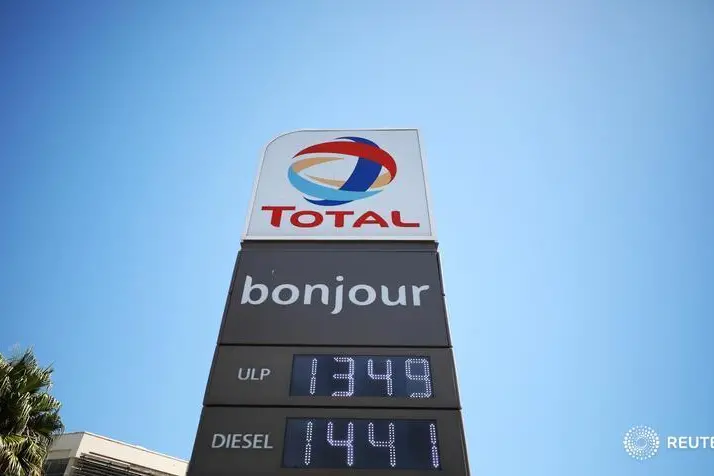PHOTO
LONDON (Reuters Breakingviews) - Oil major executives have an unfortunate wind problem. The likes of Total and Royal Dutch Shell like to convey a nuanced picture on low-carbon renewable energy: they’d love to do more of it, but the need to keep offering shareholders high returns means sticking predominantly to fossil fuel production. The rapid change in offshore wind is making this harder to sustain.
The tailwind behind the sector is getting stronger. The International Energy Agency said on Oct. 25 that offshore wind capacity should grow 15-fold by 2040, while the cost of the electricity it produces will fall by 60%. It also reckons development in waters less than 60 meters deep could more than satisfy global electricity demand. Compare that with Carbon Tracker research released on Wednesday estimating oil and gas majors need to cut production by 35% to comply with Paris Agreement targets. It should be obvious to CEOs like Total’s Patrick Pouyanné and Shell’s Ben van Beurden where the growth is.
What’s less obvious is whether they are the ones to tap it. Some shareholders don’t want oil majors to get into renewables production, where they have failed before and have less expertise. Others unfavourably compare the 8% internal rates of return Wood Mackenzie reckons are achievable on offshore wind projects with the 20%-plus historically attainable on oil exploration. Bumps in the road in the newfangled market persist: Orsted shares on Tuesday fell 7% because the Danish wind operator lowered its expected return after reassessing their capacity.
Pouyanné and co have ways to juice returns. They could dump farms in separate vehicles, loading them up with cheap debt. Or they could sell minority stakes in farms to infrastructure funds, which will pay a high price for boring but stable assets. But the basic problem remains. Projects in leading offshore markets like the UK are innately lower risk because prices are effectively guaranteed via government auctions in which capacity is controlled. That type of low-return utility model is a far cry from drilling oil.
The alternative is just hope oil demand keeps growing. Yet crude prices may collapse if governments, emboldened by cheap renewables, tax carbon to limit oil consumption. Maybe the most compelling reason for Shell and Total to embrace wind is not that they could achieve higher returns than actual utilities, but that climate change will soon see their current returns sink to the same level, or lower.
CONTEXT NEWS
- French oil major Total on Oct. 30 reported a smaller than expected third-quarter profit fall as record production growth countered crude and gas price declines that sent profit down 24% year-on-year.
- Output rose 8.4% year-on-year to more than 3 million barrels of oil equivalent per day, with the company saying it is on track to hit 9% output growth this year thanks to new projects and increased production in Russia, Angola, Nigeria, Norway and Britain.
- Debt-adjusted cash flow fell 2% to $7.4 billion while adjusted net profit slumped by 24% to $3 billion.
- The group bought back $1.15 billion of its shares in September and will buy back a total of $1.75 billion of its shares in 2019 as part of its $5 billion buyback programme between 2018 and 2020.
- As of 1200 GMT Total shares were trading at 47.4 euros, down 0.6%.
(The author is a Reuters Breakingviews columnist. The opinions expressed are his own. Refiles to fix punctuation in paragraph 4.)
(Editing by Neil Unmack and Oliver Taslic) ((george.hay@thomsonreuters.com; Reuters Messaging: george.hay.thomsonreuters.com@reuters.net))





















